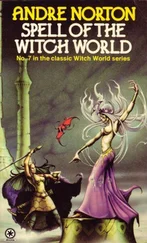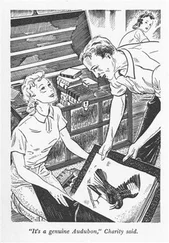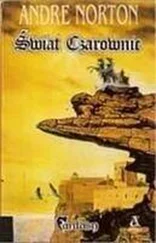Andre Norton - Ware Hawk
Здесь есть возможность читать онлайн «Andre Norton - Ware Hawk» весь текст электронной книги совершенно бесплатно (целиком полную версию без сокращений). В некоторых случаях можно слушать аудио, скачать через торрент в формате fb2 и присутствует краткое содержание. Жанр: Фэнтези, на английском языке. Описание произведения, (предисловие) а так же отзывы посетителей доступны на портале библиотеки ЛибКат.
- Название:Ware Hawk
- Автор:
- Жанр:
- Год:неизвестен
- ISBN:нет данных
- Рейтинг книги:4 / 5. Голосов: 1
-
Избранное:Добавить в избранное
- Отзывы:
-
Ваша оценка:
- 80
- 1
- 2
- 3
- 4
- 5
Ware Hawk: краткое содержание, описание и аннотация
Предлагаем к чтению аннотацию, описание, краткое содержание или предисловие (зависит от того, что написал сам автор книги «Ware Hawk»). Если вы не нашли необходимую информацию о книге — напишите в комментариях, мы постараемся отыскать её.
Ware Hawk — читать онлайн бесплатно полную книгу (весь текст) целиком
Ниже представлен текст книги, разбитый по страницам. Система сохранения места последней прочитанной страницы, позволяет с удобством читать онлайн бесплатно книгу «Ware Hawk», без необходимости каждый раз заново искать на чём Вы остановились. Поставьте закладку, и сможете в любой момент перейти на страницу, на которой закончили чтение.
Интервал:
Закладка:
Ware Hawk
Andre Norton
Prologue
Estcarp, the last-held land of the Old Ones in the latter days, was ruled by the Witch Women with the Power that had once been the heritage of all those from whom they had sprung. The land had been caught between two enemies—the new peoples—those of Alizon in the north, and Karsten in the south. To the east lay the mysterious land which, by the Power, was closed to the people of Estcarp, as protection against ancient evil. Then, from the sea in the south, came the Kolder who were rapers of men’s minds, who used strange machines to create armies of living dead. Determined to rule the world, they had come through one of the Gates. They hated the Witches mightily, for their minds could not be overborne by the Kolder machines.
They captured Gorm and the city of the Sulcar sea people who had been long allied with Estcarp. In Karsten they made Duke Yvian one of their mind-dead. So they moved upon Estcarp as though it were a nut to crack between two stones.
Then, out of another space and time, came Simon Tregarth who swore liege oath to the Witches. With Koris, exiled from Gorm, and the Witch Jaelithe, as well as Loyse of Verlane (axe-wedded to Duke Yvian whom she had never seen), he moved to mighty action, rousing all the land.
The Kolder were driven back to their Gate, and it was closed by Simon and Jaelithe (who had wed with Simon against all the custom of her people and so lost the Witches’ favor but not her own powers). Then, because Duke Yvian was dead without heirs, there was war in Karsten.
Before Yvian’s death, by the Kolder orders, he had outlawed—or horned—all of the Old Race who lived within the borders of the Duchy of Karsten. There was red massacre and much horror, but some escaped, to flee north to their distant kin in Estcarp. There they became the Borderers under Simon, and, with the Falconers, held the mountain passes.
Now a “new man,” called Pagar, appeared, and he united the quarreling lords of Karsten by giving them a common goal—the invasion of Estcarp. The Estcarp forces were too few to resist. To save Estcarp, the Witches gathered all their might and, in a single night, struck at the land itself, destroying the mountains, turning and twisting rocks and earth into chaos. This came to be known as the Turning. Many of the Witches died in the backwash of the Power and the few left were reft of much of their strength, but Pagar and his forces were annihilated.
Jaelithe Tregarth had borne her lord three children at one birth—a thing hitherto unknown. In their childhood she went seeking her lord who had never returned from a scouting trip. The three young Tregarths held fast to each other, though the sister was torn away to be trained by the Witches. It was on the very night of the Turning that her two brothers brought her out of imprisonment. Together they fled east, for the old barrier did not hold against them who were of half blood. So they came into Escore, the forgotten homeland, and there they warred with evil stirred to new life by their coming. To them, little by little, were drawn many of those who had once been of Karsten and then had defended the border, together with their kin and clans—moving into the same country from which their ancestors had fled.
Karsten, after the death of Pagar and his army in the mountains, was in a chaos of warring lords. The turned and twisted mountains gained an evil reputation and only outlaws sought refuge there. Also, from Escore, now awake and seething with magic, came strange other beings to prowl this new territory.
Estcarp, exhausted by years of war, first with the Kolder, and then with her neighbors, was under the rule of Koris of Gorm. He was joined in time by Jaelithe and Simon Tregarth, returned through the aid of their children and choosing to defend the west and not the east.
Alizon, to the north, having been tricked by the Kolder into invading the western continent where lay the dales of High Hallack, was badly defeated there. Now it held an uneasy peace, though there were frequent raids south to test the defenses of Estcarp, and on that border the forces of Koris centered.
These later years were a time of many perils, of the wandering of masterless men, especially those exiled from Karsten by the Horning. Some settled in Estcarp, though they did not accept that as their true home, others took service wherever they might.
The grim and deadly race of Falconers, forced to flee their Eyrie in the mountains at the Turning, became marines on Sulcar ships or sought employment where they could, their tight organization scattered. Their once-great hold was a pile of stones. So the years sped and there were no firm roots for most men. Estcarp, under a new type of rule, was unsure of the future.
1
The wind blustered through the gray dawn. There was a crash as one of the slates from the inn roof shattered in the courtyard. Once Romsgarth had been a major town where far-traveling merchants met—the last Estcarpian hold before the overmountain way to Karsten. It was very old and worn, with perhaps a third of the stone-walled, ancient buildings falling in, to become weed-grown rubble. The days of those merchants, with their busy going and coming, were nearly two generations ago, banished now into the past. Karsten—who went to Karsten by mountain roads now? There were no roads since the turnings for the mountains themselves had set up new barriers unknown to any save outlawed men, skulkers and raiders, drawn from afar to seek refuge in holes and dens.
The pickings hereabout for such outlaws must be scanty. Three years of severe winters would have reduced even the most lawless to a small threat.
The girl standing by the inn window, holding the edge of a shutter against the push of the wind, looked out upon the not-yet stirring town, the tip of her tongue showing between her lips. This nervous habit, of which she was not aware, betrayed her anxiety, though none now were left to care what troubled Tirtha of Hawkholme.
There were many roaming along the broken border who, worn by long years of war, sought aimlessly for some refuge or had some business they held secret, lest it be taken from them, as so much else had been. Questions were not asked of travelers in these broken, dying towns. Such life as had returned to Estcarp now lay in the north—in those rich lands once more to be set under plow in a week or two, and in the ports where Sulcar ships nosed in, those hardy traders already seeking their old sea tracks.
Within this room, where a twisted rag—anchored as a wick in a bowl of oil—gave more smoke than light, hung the sour smell of too many wayfarers, too little pride in the inn, too long a span of years. Time weighed on the cracked walls, made the floor uneven, its thick boards worn by the passing of countless booted feet. Tirtha breathed in deeply of the cleaner air outside, then closed the shutter and slipped the bar into place. She moved swiftly to the uneven-legged table with the lightfootedness of one used to dangerous trails.
There she sought, for the second time since her awakening, the purse carried within her jerkin, part of the belt clasped about her waist beneath layers of drab clothing. Made of serpent skin, it was supple enough—as well as tough—for her to feel its contents without opening it. There was money there—gathered slowly, painfully. She need only to look at her calloused hands, feel the ache rising from a sudden shift of her thin shoulders to remember how most of it had come into her keeping. There was also a small hoard of ten irregular discs of gold—so old that all markings had long vanished from their surfaces—the gift of fortune itself. This she had taken as a sign that what she must do had advanced from wishful dreaming to reality.
Читать дальшеИнтервал:
Закладка:
Похожие книги на «Ware Hawk»
Представляем Вашему вниманию похожие книги на «Ware Hawk» списком для выбора. Мы отобрали схожую по названию и смыслу литературу в надежде предоставить читателям больше вариантов отыскать новые, интересные, ещё непрочитанные произведения.
Обсуждение, отзывы о книге «Ware Hawk» и просто собственные мнения читателей. Оставьте ваши комментарии, напишите, что Вы думаете о произведении, его смысле или главных героях. Укажите что конкретно понравилось, а что нет, и почему Вы так считаете.










